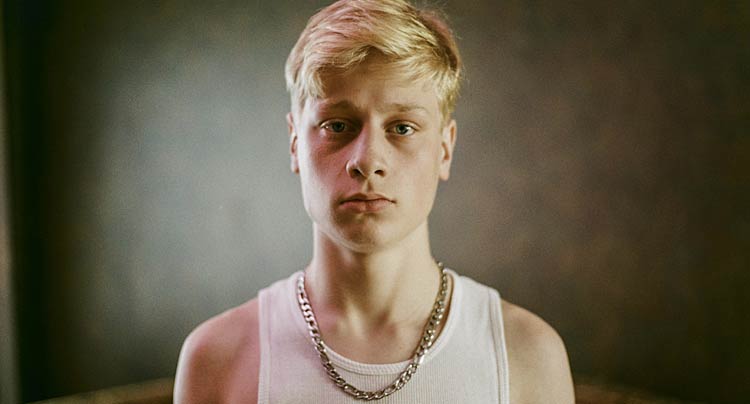
Dolan balances his most preferred theme with his showy style to create a picture pulsating with the grittiness of life's hardships.

Dolan balances his most preferred theme with his showy style to create a picture pulsating with the grittiness of life's hardships.
When discussing a new Xavier Dolan, it’s his age and not his movie that takes center stage. After all, he’s only 25-years-old [insert appropriate number of jealous exclamation points.] He started his film making career at the same time most of the us struggle with some dispensable university degree, and he came to this year’s Cannes with four features under his belt, including the fantastic debut I Killed My Mother and Un Certain Regarde winner Laurence Anyways. We already know his favored themes (tolerance of sexual orientation, fraught youth vs. exhausted adults, and a general lack of human connection) and his use (or overuse) of style and indulgent running times, have garnered some criticism over a frustrating self-awareness and a hyperactive creativity bordering on the pastiche. Well, this year with Mommy it would seem that Dolan is finally honing in his creativity, or at least, using an integral part of himself in a much more assured manner. However, there are still moments of frustration that Dolan naysers will not be able to get behind.
Diana “Die” Despre (Anne Dorval) is a single mother trying to keep it together with a meager job and no help from welfare. Her troubled son Steve (Antoine-Olivier Pilon) is thrown back into her care after causing a tragedy which left some kids with third degree burns. Her protests not working, Die has no choice but to take Steve in and in their first interaction we realize her reservations instantly; his ADHD makes him into an insufferable, hyperactive and vulgar child with a capital C. Steve needs to be home-schooled, but Die finds it hard to cope with this and keep her job (at which, she runs into further humiliation) so it becomes something of a blessing when their neighbor Kyla (Suzanne Clement) walks into their lives. A sensitive soul, struggling with a speech impediment and on sabbatical, Kyla sees through the rough exterior of Die’s and Steve’s dynamic and is thoroughly charmed. The film mostly focuses on the close bond the three make, but never lets us forget that this movie is about a mother constantly cleaning up a broken life.

Dolan’s knack with actors continues as his regulars Dorval and Clement shine through for him once again. Dorval especially, in the title role, is a whirlwind of trashy energy and faded highlights representing a faded lifestyle, but thanks to the way Dolan wrote her, and the way Dorval plays her, Die is instantaneously endearing and we root for her from the moment she has the car accident and mouths off her first curse words. Clement, unlike her tremendous turn in Laurence Anyways, is in the background of this one but a few key scenes pull us toward Kyla as a broken individual we’d love to save. How and why she’s broken is left unclear, however, and this leaves the character feeling a shade less dimensional than I’d liked. Pilon is a star as the Tasmanian Devil who can’t control his fits of anger, racial slurs, and barrage of violent insults. When the film reminds us of how much he looks like Macaulay Culkin, or when the love he has for his mother is so clear that it pains us, Pilon is at his best. Still though, with Clement’s underwritten character and Pilon’s untimely showiness, it’s Dorval who stands the tallest in a staggering award-worthy performance. It’s just too bad she has Marion Cotillard to compete with for Best Actress.
Other than how accomplished the film looks for a 25-year-old, the other thing most people will talk about here is the aspect ratio. It’s 1:1 for most of the film and the first five minutes were infuriatingly claustrophobic. But it doesn’t take long to realize how important this claustrophobia is to the story of these characters, and the beauty of the shots begin to shine, with characters hanging like melancholic portraits. In a significant moment, the aspect ratio breathes and it’s one of the greatest uses of form I’ve seen at Cannes – however, it’s stifled by Oasis’ Wonderwall playing on the soundtrack. And this is where we come back to some of Dolan’s slightly frustrating qualities. The writing and direction of certain scenes lay on the drama a little too thick, with a texture so fabricated by the soundtrack and shot composition a gag reflex almost sets in. And it’s a shame too, because the story of these people and how effectively the friendship and love is evoked really doesn’t need any additives which scream “you know, in case you weren’t sure how you’re supposed to feel, this is how”. Mommy holds the audience’s hand a bit too long, it still has that Dolan self-awareness with the use of pop music, unnecessary slow-motion and one incredibly overburdened montage, and some character decisions make no sense beyond creating empathy. But having said all that, there is no denying the compassion Dolan manages to capture here, and together with his three actors and some excellent writing, for the first time in his career it feels like he’s balanced out his most preferred theme with his showy style, creating a picture pulsating with the grittiness of life’s hardships.